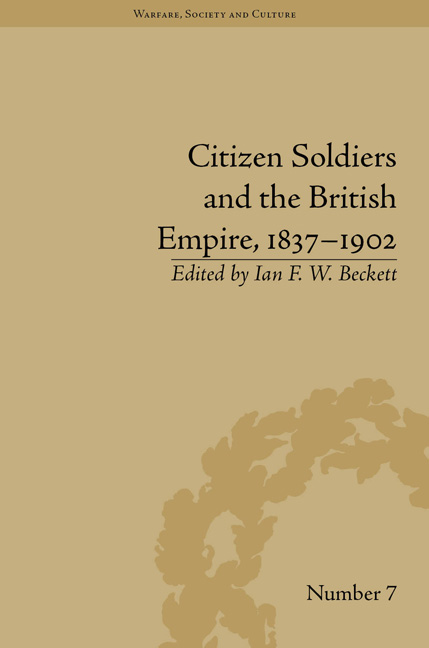7 - South Africa
Summary
Two traditions of citizen soldier service developed in nineteenth-century South Africa: the Boer commando and the British volunteer regiment. During conflicts with indigenous Khoisan in the 1700s, frontier Dutch settlers in the Cape organized voluntary local militias called ‘commandos’ that would mobilize when needed and then disband. Formed in the mid-1800s, the interior Boer republics relied exclusively on the commando system, which fielded highly mobile forces of skilled horsemen and marksmen but suffered unstable leadership, non-existent logistics and high rates of desertion. The nineteenth-century wars between the British ruled Cape Colony and the neighbouring Xhosa groups produced a number of volunteer and ad hoc colonial military units. Beginning in the mid-1850s, in the British territories of the Cape and Natal, around the same time that white settlers began to assume more political responsibility, mostly English-speaking whites formed permanent militia units based on the British regimental system. The discovery of minerals, diamonds in the Northern Cape in the late 1860s and gold in the Transvaal during the 1880s, renewed colonial conquest in the region. This process depended heavily on the participation of citizen soldiers from both the Boer republics and British colonies.
Commandos
Expanding east from the Cape Colony, Dutch-speaking frontier farmers called Trekboers organized mounted commandos that would mobilize for cattle and slave raids against indigenous Khoisan and to pursue stock thieves. Between around 1700 and 1715, the first commandos consisted mostly of Dutch East India Company employees and a few settler volunteers. Although the first entirely civilian commando was formed in 1715, these groups remained dependent upon the company for ammunition. In 1739 commando service became compulsory for all frontier male settlers who often brought along Khoisan servants or sent them as substitutes. Khoisan members, sometimes constituting the majority of a commando, were armed and received a share of captured livestock though less than white settlers. Commando leaders were not required to obtain permission to raise a force but simply had to submit a report upon completion of operations.
- Type
- Chapter
- Information
- Citizen Soldiers and the British Empire, 1837–1902 , pp. 139 - 154Publisher: Pickering & ChattoFirst published in: 2014



